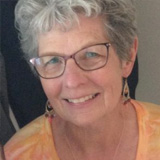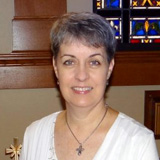Welcome Back
If you are a Program Participant, Program Facilitator, or JustFaith Network Member you are in the right place! Log in to see all your content.
Forgot your password?What our program participants are saying

JustFaith’s new "Youth for Justice: Our Faith in Action” curriculum provides youth leaders with the resources they need to take on the hard questions and work of justice in their unique ministry locations. With probing questions, eye-opening videos, and a variety of topics to choose from, youth are able to explore and discover the connection between their faith and justice—and that these two are inextricably intertwined. Youth will connect to the contemporary music offered in the curriculum and discover that there is no choice but to live out the things they are learning. We are very grateful for this youth-centered curriculum that lighting a fire in youth at our church!

Following a 25 year career providing counseling as a therapist, I was curious to participate in the pilot for Want to Talk: Communication Tools for Divided Times. Communication skills were an important skill addressed with many clients. I thought this new JFM module covered many of the essential "tools" for effective communication in most relationships, especially with the recent challenges with so many controversial topics. I hear many people comment: "I just don't know how to respond", or "how do I have this conversation". This module will provide many skills that can make a real difference.

The recurring thought that I had throughout my participation in Faith and Poverty: A Global Response was 'I can do better.' The program allowed me to make connections between my thoughts, beliefs and actions and the lives of others around the world. I was reminded again and again how interconnected we all are. I cannot fix global poverty, but with the knowledge and passion I learned in this program, I can certainly be part of the solution instead of part of the problem.
